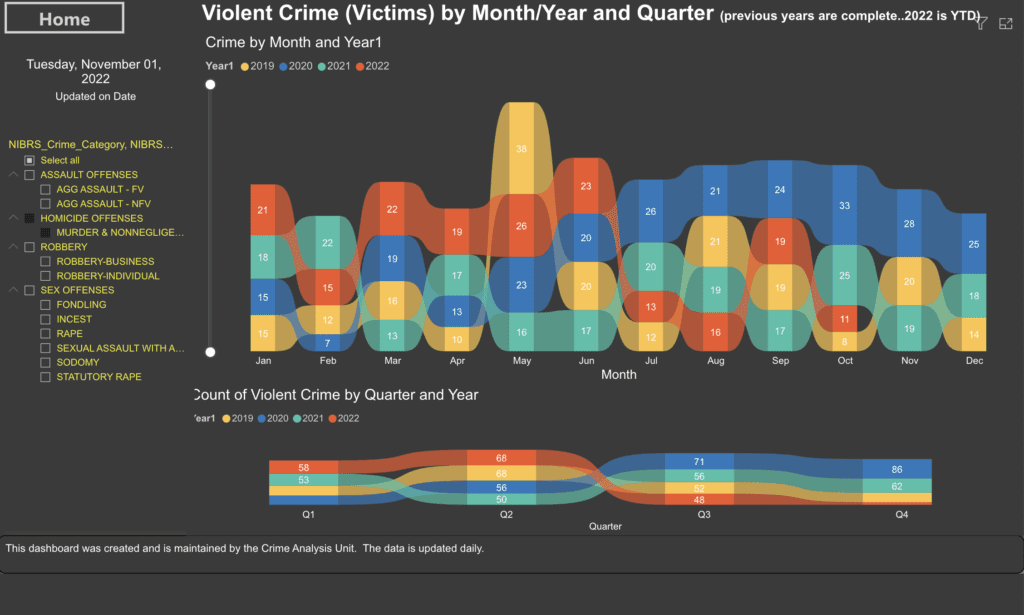An internal report published on Monday, October 31 by the Dallas Police Department (DPD) shows that non-family-violence homicides ticked up significantly in 2022 compared to last year.
The number of homicides in Dallas this year stands at 189 as of press time, and DPD logged 165 street homicides through the end of October, more than were killed through the same period in 2021 and confounding the narrative that overall violent street crime is trending downward. At times during 2022, the number of murders in Dallas has trended close to 20% higher than last year.
Police Chief Eddie Garcia admitted as much in September, hedging against decreases in certain categories of violent crime, stating, “We are not doing a touchdown dance. There is still work to be done.”
The bulk of the killings occurred between March and July, according to DPD data, when dozens were slayed within the city limits, but recent, more high-profile homicides also contributed to the increase over last year.
-

Violent Crime Data
In September, local rapper Antywon Dillard, 22, also known as BFG Straap, was fatally shot near South Malcolm X Boulevard. He died at an area hospital. Another man, Cory Medina Lucien, 26, was also found shot to death at the scene, as previously reported by The Dallas Express.
More recently, Asia Janae Womack, 21, was murdered last month, allegedly shot multiple times by a man she had beaten in a pick-up game of basketball at T.G. Terry Park.
Then there was the recent shooting at Methodist Dallas Medical Center, which claimed the lives of social worker Jacqueline Pokuaa and hospital nurse Katie Flowers. The alleged killer was a parolee with an active ankle monitor on his leg.
Chief Garcia took to Twitter following the double homicide at the hospital and lambasted a “broken system” where violent criminals are given more chances than victims.
“The pendulum has swung too far,” he tweeted, likely referring to the fact that the alleged perpetrator had been arrested twice this year while out on parole for aggravated robbery yet did not have his parole rescinded by the Texas Board of Pardons and Parole.
In addition to murders, Dallas has also seen an increase in motor vehicle thefts, robberies and narcotics violations.


